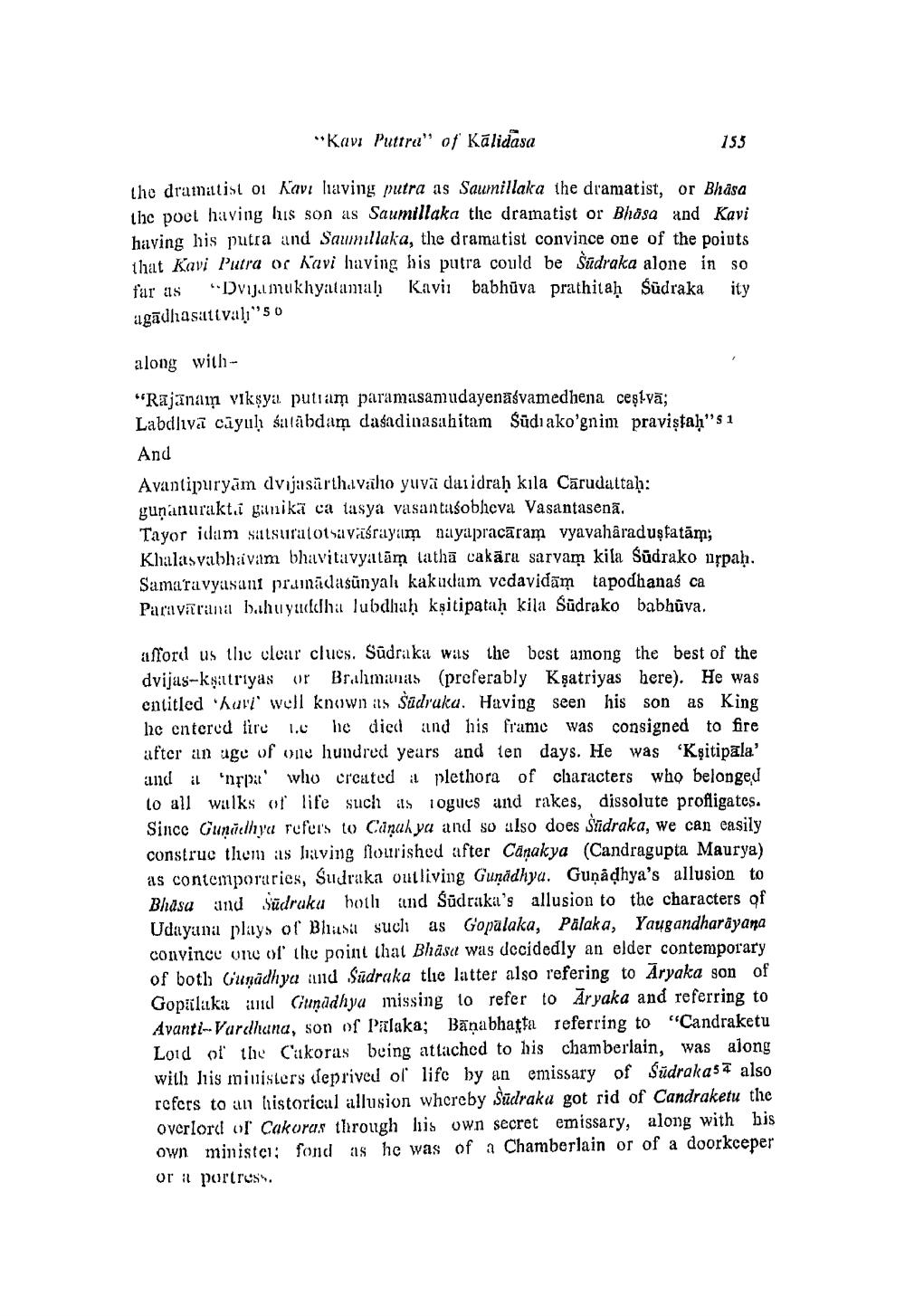________________
"Kavi Puttra" of Kalidasa
153
the dramatist ou Kavi liaving putra as Saumillaka the dramatist, or Bhasa the poet having hus son as Saumillaka the dramatist or Bhasa and Kavi having his putra and Saumıllaka, the dramatist convince one of the poiuts that Kavi Putra or Kavi having his putra could be šūdraka alone in so far as "Dvija mukhyatanah Kavii babhūva prathitaḥ Südraka ity agādhasattval"50
along with
"Rajanai viksya putiam paramasamudayenāśvamedhena cestvā; Labdliva cayuh Satabdam dasadinasahitam Südı akо'gnim praviştah's 1 And Avantipuryām dvijasärthivalio yuvā daridrah kila Carudattah: gunanurakt.i ganika ca tasya vasantaśobheva Vasantasena. Tayor idam satsuratotsavarayam nuyapracāram vyavahâradusfatām; Khalasvabhavam bhavitavyatām tathā cakāra saryam kila Sūdrako upah. Samaravyasaní pramādasünyak kakudam vcdavidām tapodhanaś ca Paravarana bhuyuchu lubdhah kşitipatah kila Sūdrako babhūva.
afford us the cloar clues. Sūdraka was the best among the best of the dvijas-knitriyas or Brahmanas (preferably Kşatriyas here). He was entitled 'hart' well known as Šüdruka. Having seen his son as King hc entered fire 1.
C he died and his framic was consigned to fire after an age of one hundred years and ten days. He was "Kşitipala' and it 'nppa' who created a plethora of characters who belonged to all walks of life such as ogues and rakes, dissolute profligates. Since Gumäelhya refers to Cunuh ya and so also does Šūdraka, we can easily construc them as Irving flourished after Canakya (Candragupta Maurya) as contemporaries, Sudraka outliving Gunädhya. Gunadhya's allusion to Bhasa and Südruku hoth and Sūdraka's allusion to the characters of Udayana plays of Bhutnat such as Gopalaka, Palaka, Yaugandharayana convince one of the point that Bhasa was decidedly an elder contemporary of both Gunādhya and Sūdraka the latter also refering to Aryaka son of Gopalaka und Gunadhya missing to refer to Aryaka and referring to Avanti-Varelhuna, son of Palaka; Bāṇabhatta referring to "Candraketu Lord of the Cukoras being attached to his chamberlain, was along with his ministers deprived of life by an emissary of Südraka57 also refers to an historical allusion whereby Šūdraka got rid of Candraketu the overlord of Cakoras through his own secret emissary, along with his own ministei: fond as he was of a Chamberlain or of a doorkceper or il portress.




